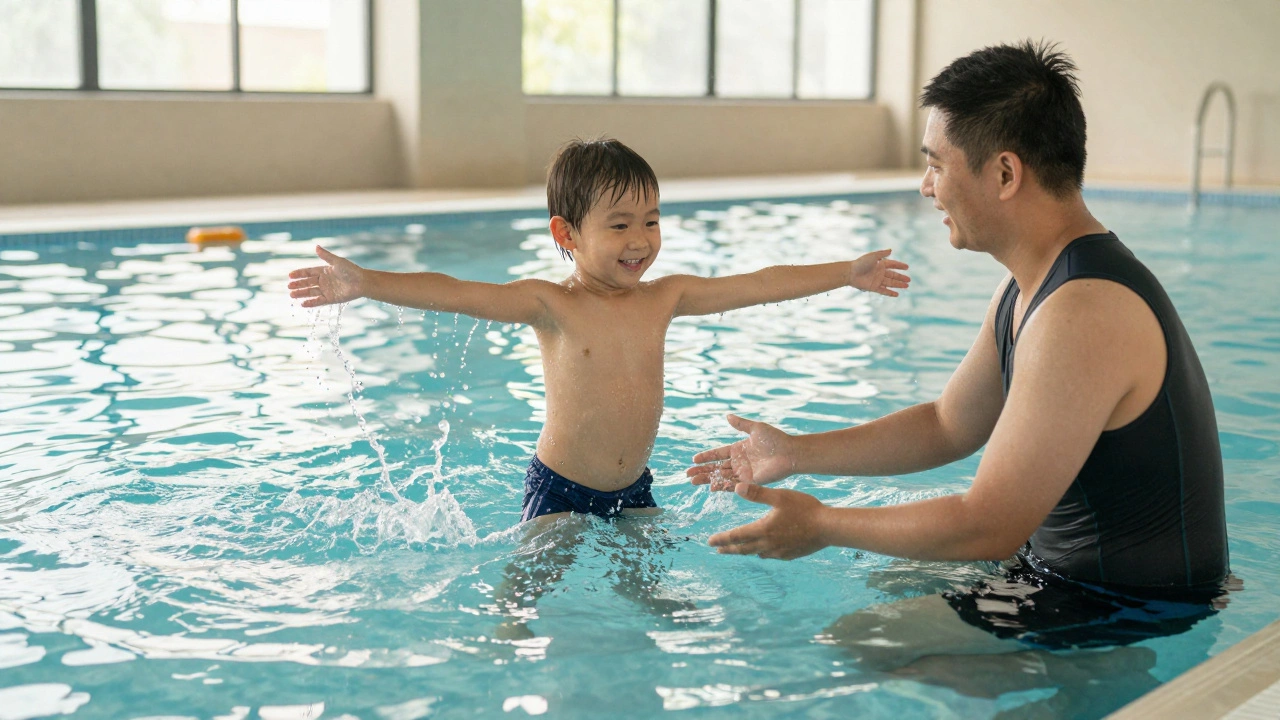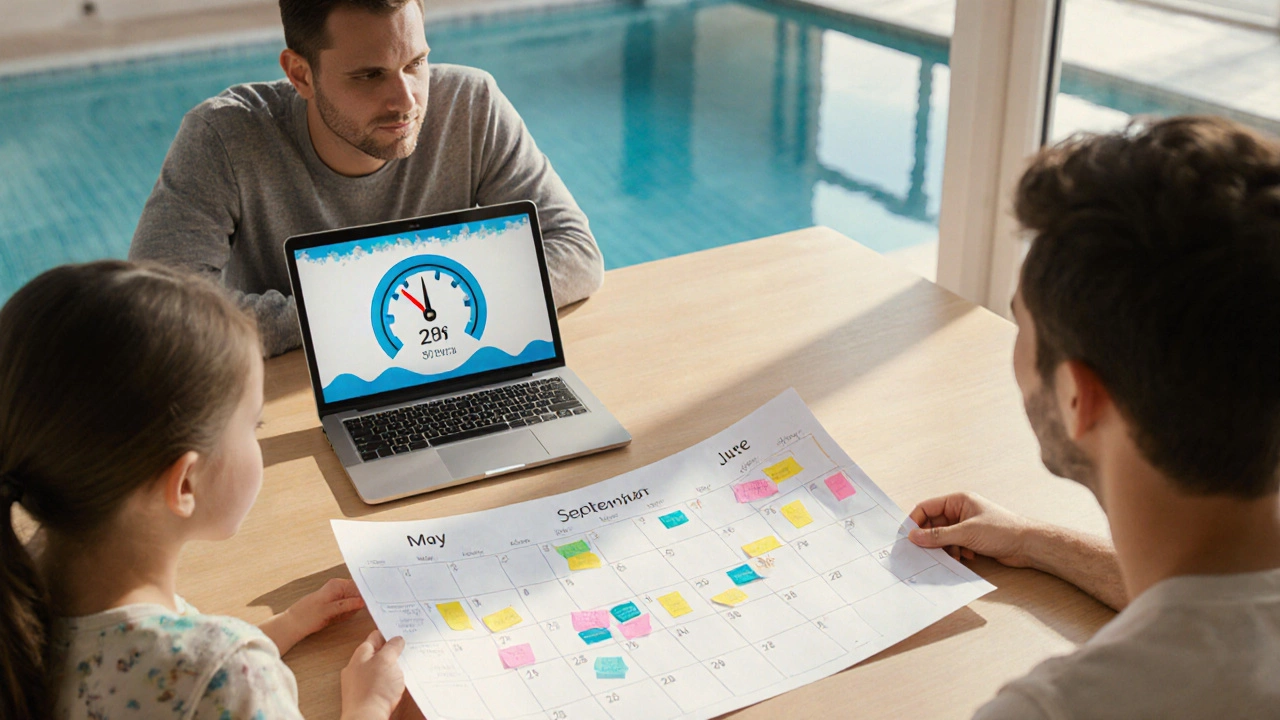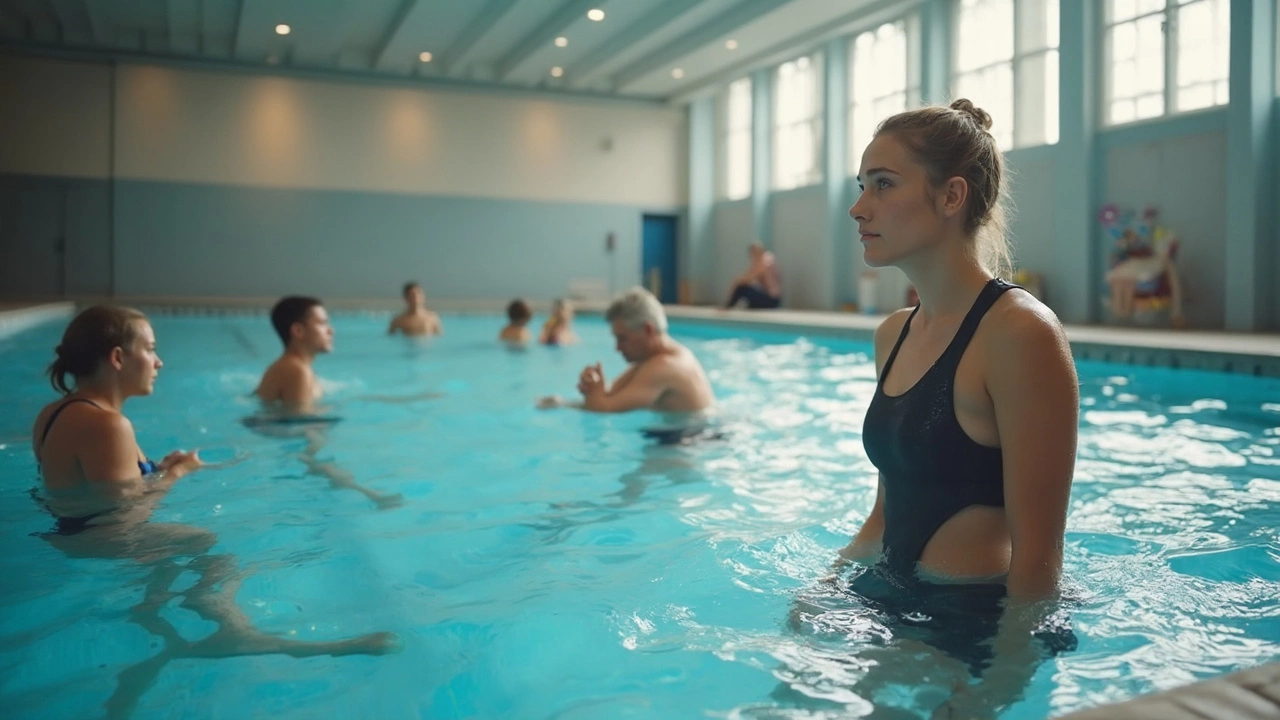Swimming Guides: Tips, Lessons & How Often to Practice
Want to improve your swim game without guessing? You’re in the right place. Here you’ll find straight‑forward advice on everything from getting started in the pool to planning the perfect practice schedule. No jargon, just useful tips you can try today.
How Often Should You Hit the Pool?
Most beginners wonder whether three days a week is too much or if once a week is enough. The sweet spot usually lands between two and three sessions. That gives your muscles time to recover while still building muscle memory. If you’re juggling work or school, aim for two focused lessons and add a short, relaxed swim on a third day. Consistency beats intensity for most new swimmers.
When you schedule your sessions, keep them similar in length. A 45‑minute block works well for most people – long enough to warm up, practice drills, and cool down, but short enough to stay fresh. If you feel sore, dial back the distance, not the frequency. Remember, regular low‑volume practice often yields better progress than occasional marathon swims.
Beginner Lessons and Simple Tips
Starting out? Look for a class that focuses on basic strokes, breathing, and water confidence. A good instructor will break each skill into bite‑size steps. Practice blowing bubbles, then add a glide, and finally link the motions together. Outside class, spend a few minutes each day on a single drill – maybe a kickboard flutter kick – to reinforce what you learned.
Don’t forget to track your progress. A simple log noting the date, duration, and what you worked on can highlight patterns and keep you motivated. If you notice you’re getting better at a particular drill, move on to the next challenge. Small wins add up fast.
Equipment doesn’t need to be fancy. A comfortable pair of goggles, a swim cap, and a basic swimsuit are enough. Use a kickboard or pull buoy only when you need extra support for a specific drill. The pool itself does most of the work – stay relaxed, breathe steadily, and enjoy the water.
Lastly, listen to your body. If you feel tight shoulders or a lingering ache, swap a swim for a light stretch or a short walk. Healthy habits outside the pool, like staying hydrated and getting enough sleep, boost your performance in the water too.
With the right schedule, solid lessons, and a few practical tips, you’ll see steady improvement. Keep the sessions regular, focus on one skill at a time, and celebrate each small milestone. The pool is a place to have fun while getting stronger – and now you have a clear path to get there.
Is 7 too old to learn to swim? The truth about starting swimming lessons later

Is 7 too old to learn to swim? No. At this age, kids have the focus and coordination to build real swimming skills. With the right lessons, they can become confident, safe swimmers-even if they’ve never been in a pool before.
Best Month to Start Swimming Lessons - Seasonal Guide 2025

Discover the optimal month to start swimming lessons by weighing climate, pool pricing, school breaks, and health factors. A detailed guide helps you pick the perfect time for fast progress.
What Age Is Ideal for Starting Swim Lessons?

Find out the ideal age to start swim lessons, see how child development, safety and class types affect readiness, and get a checklist for picking the right program.
How Often Should a Beginner Swim? Smart Schedules for Starting Out

Curious how many times a week you should actually swim when you're just getting started? This article breaks down what works best for brand new swimmers. You'll get real-life tips, practical advice, and what science says about building good habits in the pool. Learn how to set a schedule that helps you improve without feeling burnt out. Plus, find out how to tell if you're pushing too hard—or not enough.
How Many Days a Week Should You Learn to Swim?

Wondering how often you should hit the pool to learn swimming effectively? This article breaks down the ideal weekly schedule for swimming lessons, weighing factors like age, goals, and skill level. It offers insights into how frequent practice impacts your progress and shares interesting facts on muscle memory and stamina. By the end, you'll have a clearer idea of how to tailor your swimming learning plan to fit your needs.
